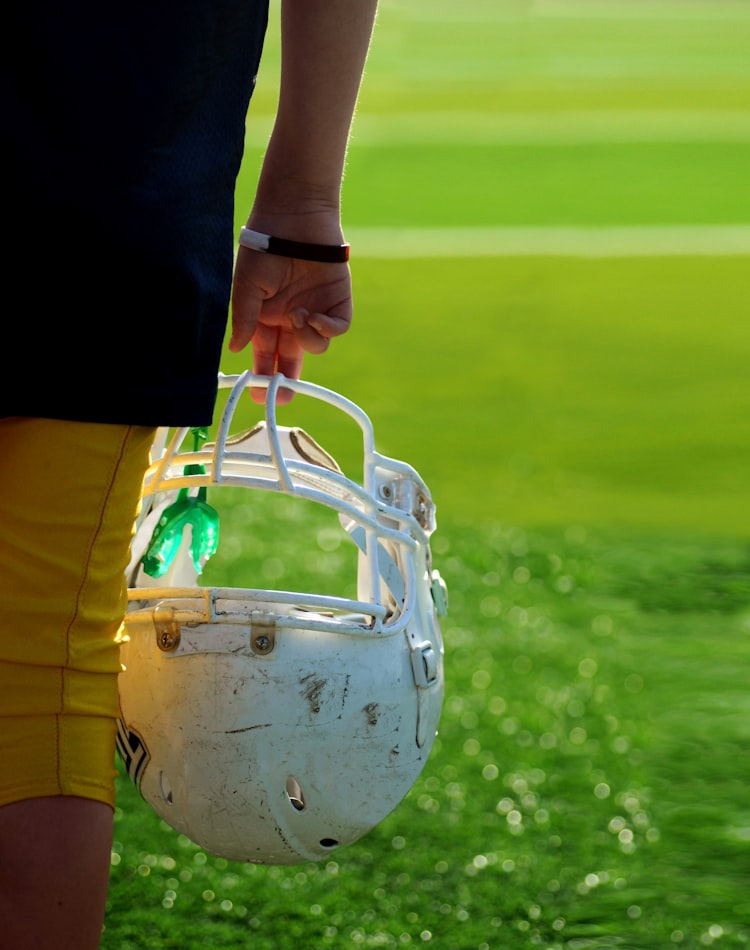What to do if you suffer a dental injury while playing sports

Playing sports can be a fun and rewarding experience, but as is the case with many challenging physical activities, injuries to the mouth and face can occur.
Dental injuries account for around 30% of all injuries in sports and result in more than 600,000 emergency room visits each year. According to the National Youth Sports Safety Foundation, more than 3 million teeth are avulsed (or knocked out).
If you suffer a dental injury while playing a sport, it's important to know what to do. Whether it's a knocked-out tooth, a cracked tooth, a broken or bruised jaw, or a cut lip, prompt action can help to minimize damage and prevent infection.
Here are tips for managing five common sport-related dental injuries:
1. Tooth knocked out. If a tooth is knocked out, it's essential to try to save it. Pick it up by the crown (the part of the tooth that is visible in the mouth) and not by the root. Gently rinse the tooth with water, but do not scrub it or remove any tissue that may be attached. Try to place the tooth back in its socket and hold it in place with a clean cloth or gauze. If the tooth cannot be put back in its socket, store it in a container of milk or saliva; the tooth can be re-planted if this is done within an hour of the injury.

2. Tooth pushed out of position. If the tooth is not knocked out but is instead pushed out of position or pushed into the gums or bone, you should either try to move the tooth gently back to its initial position or hold it in place with a gauze or napkin until you can see a dentist.

3. Tooth fractured or chipped. If a tooth is cracked or chipped, rinse your mouth with warm water and apply a cold compress to the area to reduce swelling. If the tooth is painful or the crack is severe, seek dental attention as soon as possible.

4. Cut or laceration. If you have a cut or laceration inside your mouth, the first thing to do is to stop the bleeding. Then rinse your mouth with warm water and apply a cold compress to the area to reduce swelling. Seek immediate medical attention if the cut is deep or you can't stop the bleeding.

5. Jaw injury. If you believe the jaw and its joint (also known as the temporomandibular joint, or TMJ) are injured, seek immediate care. And if the injury is severe or you are disoriented, call emergency care and support the jaw gently using your hands or bandage on the way to the emergency room.

If the injury appears minor, it's still important to seek dental attention as soon as possible. A dentist can examine the wound, take x-rays, and determine the appropriate action, including antibiotics or other treatments.
In addition to seeking immediate medical attention, it's also essential to take steps to prevent dental injuries from happening in the first place.
Here are a few tips for preventing dental injuries during sports:
- Wear a mouthguard. A properly fitted mouthguard can help to absorb the impact of a blow to the face and reduce the risk of dental injuries.
- Learn proper techniques. Many dental injuries result from improper technique. Take the time to learn how to play your sport and use the equipment properly.
- Stay in good physical condition. Being in good physical condition can help to reduce the risk of injuries.
- Be aware of your surroundings. Be mindful of what's happening around you and anticipate potential hazards.
In conclusion, dental injuries are common in sports and can range from minor to severe. It's important to know what to do in the event of a dental injury and to take steps to prevent them from happening. If you suffer a dental injury, seek dental attention as soon as possible to minimize damage and avoid infection. And always take precautions, learn proper techniques, stay in good physical condition, and be aware of your surroundings.




Member discussion